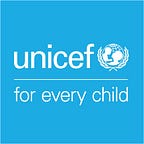Harisson Sakilla:
Liberia’s first Ebola Survivor
Harisson Sakilla was the first person to be admitted to an Ebola Treatment Unit
in Liberia, and the first one to walk out alive.
I’m in Lofa county, Liberia, and I wait for a man walking toward me. As he gets closer his face breaks into a smile. “Hi, I’m Harisson,” says the man in the oversized t-shirt and rubber boots.
Nine months ago, Harisson had nothing to smile about. He had traveled from Liberia to Sierra Leone to care for his sick mother. Harisson had heard about Ebola and, even though his mother’s symptoms fit the description, he thought she had malaria or some other illness. A few days later, she died. Four days after he buried his mother, he started feeling sick.
“My head was hurting a lot, my stomach was running, and my body felt weak,” Harisson recalls.
The Ebola outbreak in Liberia was declared on 31 March 2014. The first wave of the epidemic was quickly stamped out, but new cases were reported in May. By the time Harisson fell ill in early June, the first Ebola Treatment Unit (ETU) in his native Foya district had been built. He was the first patient admitted.
“I remember I was nervous and confused. What would happen to me? During the month I spent at the ETU, I saw people coming in, and then being taken out in body bags. I felt terrible.”
“I was also worried about my family on the outside,” he says. His family did not visit the ETU often, owing to the distance from his village and fear of being infected themselves.
The one regular visitor Harisson had was Morris Kamara, the first UNICEF staffer to be airlifted to Foya in April 2014. His job was to mobilize communities and raise awareness on how to prevent the spread of Ebola.
“I needed to know what was going on in the county I was responsible for, so, in addition to raising awareness on Ebola in the communities, I went to the ETU every day to check on the patients,” Morris says.
The daily visits from Morris meant the world to Harisson, who was hovering between life and death.
“Morris came every day, checking on me, giving me good voice, good talk. He really made an effort. When I was at my lowest, sometimes he came several times a day,” says Harisson. “He kept my spirit up, told me not to panic my heart — and that I was going to be somebody,” he adds, as he glances at Morris, whom he now counts as one of his closest friends.
During his time at the ETU, Harisson was regularly tested for Ebola. One day, an ETU staff member came back with a new set of clothes.
Later that day Harisson Sakilla walked through the gates of the facility — the first Ebola survivor from an ETU in all of Liberia.
“I remember it was a Thursday. It was about 5 p.m. As I approached the house, someone alerted my wife, and she came running towards me, hugged and kissed me. We went back to the house where my six children were waiting, and they were jumping on me.”
“They were all so happy to see me, and I was so happy to see them,” Harisson explains with a smile.
However, being a survivor has been tough. Harisson says that people were afraid of him, and afraid that they could contract the disease from him. “People wouldn’t eat and drink with me, and they wouldn’t walk next to me. People I used to hang out with wouldn’t see me.
“But I don’t blame them. They didn’t know better,” says Harisson.
When he got his strength back, he worked for a short time at the same ETU in which he was admitted so he could help other Ebola patients. Not only does he know what it feels like to have Ebola, he also knows what it feels like to lose several family members. Harisson lost both his parents, his older sister, niece and her daughter to Ebola.
“It makes me feel very sad. I’m still struggling with the loss, but I’m working on it. I’m getting help,” he says.
By Helene Sandbu Ryeng
Read more about UNICEF’s work in the Ebola crisis
